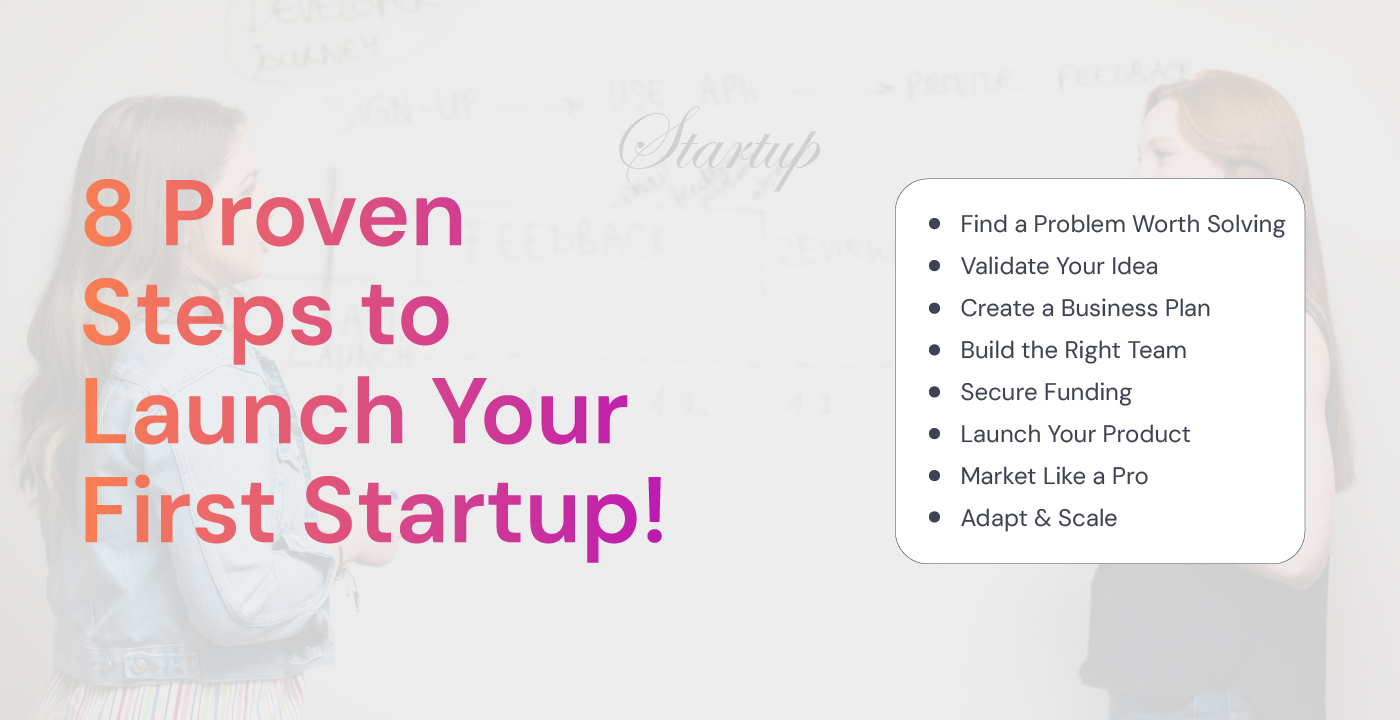You pour your heart, time, and money into a business, only to watch it crumble within months. It’s terrifying, yet this happens more often than you’d think. 90% of startups fail, not because their ideas were bad but because they fell into avoidable traps.
So, what separates those who make it from those who don’t? In a phrase… smart decisions!
This blog is not just another list of startup failures but a playbook of lessons learned from real businesses that didn’t make it. And more importantly, how you can sidestep their mistakes and avoid common startup pitfalls.
What Do Common Startup Pitfalls Teach Aspiring Founders?
The startup is not a fearsome idea at all. You can avoid making these same mistakes as a startup founder by learning from past failures.
1- Ignoring Market Demand
Building something no one actually needs is a recipe for failure. Many startups assume that a great product will automatically attract customers, but that’s rarely the case.
Quibi, a short-video streaming platform founded by Hollywood producer Jeffrey Katzenberg, raised $1.75 billion before its launch in April 2020. It was designed for on-the-go users who wanted quick and high-quality videos.
What was the problem here? No one wanted to watch 10-minute shows on their phones when they already had YouTube and TikTok for free. Within six months, Quibi shut down which proved that even massive funding can’t save a product that lacks demand.
As a startup founder, how can you avoid this situation? Let us explain:
- Conduct thorough market research before investing in product development.
- Talk to potential customers and validate if they actually need your solution.
- Launch a Minimum Viable Product (MVP) and gather feedback before scaling.
2- Running Out of Cash
Many startups burn through funding too fast, which stems from the assumption that they can always raise more. But when the money runs out, so does the company.
Beepi, an online used car marketplace, was once valued at $560 million. It promised to make buying and selling cars easier, but behind the scenes, it was hemorrhaging money. The company spent lavishly on office perks, inflated salaries, and unsustainable expansion.
By 2017, investors pulled the plug, and Beepi had shut down, unable to cover its operational costs. Running out of cash was a massive setback here, and here’s how you can avoid the same mistake:
- Control spending and focus on sustainable growth rather than rapid expansion.
- Keep a close eye on cash flow and always have a financial backup plan.
- Prioritize profitability over growth; revenue should be your ultimate goal.
3- Choosing the Wrong Team
A great idea isn’t always enough; you need a solid team to execute it. Many startups fail because of co-founder conflicts, lack of leadership, or hiring the wrong people.
Jawbone was once a leader in wearable fitness tech. The company raised over $900 million but eventually collapsed. The problem was poor leadership and internal disagreements.
The company kept pivoting its product focus which made it very difficult to retain customers. As competitors like Fitbit and Apple gained traction, Jawbone couldn’t keep up. In 2017, it liquidated its assets and left employees unpaid.
Choosing the right team should be a number one priority for startup founders. We have some quick tips to help you:
- Partner with co-founders who share your vision but bring complementary skills.
- Clearly define roles and responsibilities to avoid confusion.
- Hire experienced leaders who can adapt to market changes and manage crises.
4- Poor Marketing and Branding
Even the best products fail if no one knows about them. Or if the branding is unclear.
Color, a social networking app raised $41 million before launch in 2011. It aimed to create a new way to share photos but failed due to confusing messaging and zero market traction. The app had no clear value proposition and users didn’t understand how it was different from Instagram or Facebook.
Within a year, Color shut down.
If you’re an ambitious startup founder, here’s how you can avoid a marketing crisis:
- Design a clear and compelling brand message, your audience should instantly understand what you do.
- Identify your target audience and tailor marketing campaigns accordingly.
- Use social media, content marketing and influencer partnerships to build awareness.
- Bring something unique and instantly appealing to the table.
5. Scaling Too Quickly
Many startups expand too fast before their business model is ready which ultimately leads to financial and operational disasters.
Webvan, an online grocery delivery service, raised $800 million and expanded to 10 U.S. cities within two years. But the problem was the demand wasn’t there and the company spent millions building warehouses and delivery fleets before proving its model.
By 2001, Webvan filed for bankruptcy as it ran out of cash. Here’s how to understand scaling for your business:
- Start small and grow gradually, test your model before expanding.
- Ensure your finances, team and infrastructure can handle scaling.
- Avoid over-hiring or spending on unnecessary assets too soon.
6. Ignoring Customer Feedback
Some startups become so attached to their vision that they ignore what users actually want.
Google Glass, launched in 2013 was marketed as the next big thing in wearable tech. However, it failed because Google ignored customer concerns. The high price ($1,500), privacy issues, and awkward design made users hesitant.
Instead of addressing these problems, Google pushed forward… Ultimately, the product flopped.
Even Google’s product can flop because of one wrong move. Learn how to avoid this:
- Listen to your customers, gather feedback and iterate on your product.
- Be willing to pivot if necessary based on real user behavior.
- Test new features in small groups before rolling them out widely.
Final Thoughts: What Can We Learn from Past Failures?
Success comes with a great idea, but most importantly, it’s about making the right decisions. If you understand your market, manage money wisely, choose the right team and stay flexible, you can build something that lasts.
At Doerz Tech, we know firsthand what it takes to build a startup. As a growing software company, we have faced challenges, learned from mistakes, and adapted to create smart solutions. That’s why we help other startups with innovative software, streamlined processes, and the right technology to scale successfully.
Contact us today for a 30-minute complimentary call for your next big idea.
People Also Ask
1. Why do most startups fail?
Many startups fail because they run out of money, don’t understand their customers, or don’t have a clear plan. In fact, most failed businesses say money problems were a big reason.
2. How can I make sure people want my product or service?
Talk to people before you launch. Ask them if they would buy your product. Do some research to see if others are already offering something similar and what makes yours different.
3. How can I manage my startup’s money better?
Make a budget and stick to it. Avoid spending on things you don’t need. Always keep track of your money and make sure you have enough to run the business.
4. How important is the team for a startup?
A good team is very important. Choose people who have different skills and share your vision. A strong team can help you solve problems and grow the business.
5. Why does customer feedback matter?
Listening to your customers helps you improve your product. If they don’t like something, you can fix it before it’s too late. Businesses that listen to their customers grow faster.








